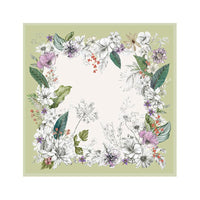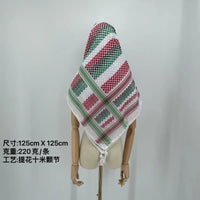The keffiyeh, a traditional Arab headdress, has become an iconic symbol of Palestinian identity and resistance. But do Palestinians actually wear keffiyehs today, and what significance does this garment hold for them? This article delves into the history, symbolism, and current usage of the keffiyeh among Palestinians, exploring its cultural and political importance.
The Origins and History of the Keffiyeh
The keffiyeh, also known as a kufiyya, ghutrah, shemagh, or ḥaṭṭah, originated among Arab nomadic communities, particularly the Bedouins, in the Middle East. Historically, it served as a practical head covering to protect against the harsh desert sun, dust, and sand. The keffiyeh is typically made from a square piece of cotton fabric adorned with distinctive woven patterns.
In Palestine, the keffiyeh's history is deeply intertwined with the country's socio-political landscape. Initially, it was worn by rural Palestinian farmers and Bedouins. However, during the 1936–1939 Arab Revolt against British rule, the keffiyeh became a symbol of Palestinian resistance and unity. Rebel leaders ordered all Palestinian men to wear the keffiyeh to prevent British forces from identifying the revolutionaries. This move transformed the keffiyeh from a rural garment into a national symbol.

Symbolism of the Keffiyeh
The patterns on the keffiyeh hold various symbolic meanings for Palestinians. Common interpretations include:
- Olive Leaves: Representing strength, resilience, and perseverance.
- Fishnet: Symbolizing the connection between Palestinian sailors and the Mediterranean Sea.
- Bold Lines: Denoting trade routes through Palestine, including the historic Silk Road.
These symbols have been embraced by the Palestinian diaspora, reinforcing the keffiyeh's role as a marker of cultural identity and heritage.
The Keffiyeh in Modern Palestinian Society
Today, the keffiyeh remains a potent symbol of Palestinian identity and resistance. It is worn by Palestinians of all ages and genders, both within Palestine and in the diaspora. The black-and-white keffiyeh, in particular, has become synonymous with Palestinian nationalism, largely due to its association with prominent figures like Yasser Arafat, who popularized the garment in the 1960s.

Political and Cultural Significance
The keffiyeh is more than just a piece of clothing; it is a statement of solidarity and resistance. During protests and demonstrations, Palestinians often wear the keffiyeh to cover their faces, protecting their identities and symbolizing defiance against oppression. The keffiyeh has also been adopted by global activists and supporters of the Palestinian cause, further cementing its status as an emblem of resistance.
Fashion and Cultural Appropriation
In recent years, the keffiyeh has gained popularity as a fashion accessory in the West, often stripped of its political and cultural significance. This trend has sparked debates about cultural appropriation, with many Palestinians and their allies advocating for the recognition of the keffiyeh's origins and its role in their struggle for freedom.
Production and Economic Impact
The rise in the keffiyeh's global popularity has had mixed economic impacts. While it has increased awareness of Palestinian culture, it has also led to the mass production of keffiyehs in countries like China, undermining local Palestinian manufacturers. The Hirbawi factory in Hebron, once a thriving producer of keffiyehs, has struggled to compete with cheaper, imported versions. Despite these challenges, efforts are being made to support Palestinian-made keffiyehs and preserve this important cultural tradition.

Conclusion
The keffiyeh is a powerful symbol of Palestinian identity, resistance, and solidarity. Its deep historical roots and rich symbolism make it much more than a simple piece of fabric. While its appropriation in global fashion has sparked controversy, the keffiyeh's significance to Palestinians remains undiminished. By understanding and respecting the keffiyeh's cultural and political importance, we can appreciate its role in the Palestinian struggle for freedom and justice.





